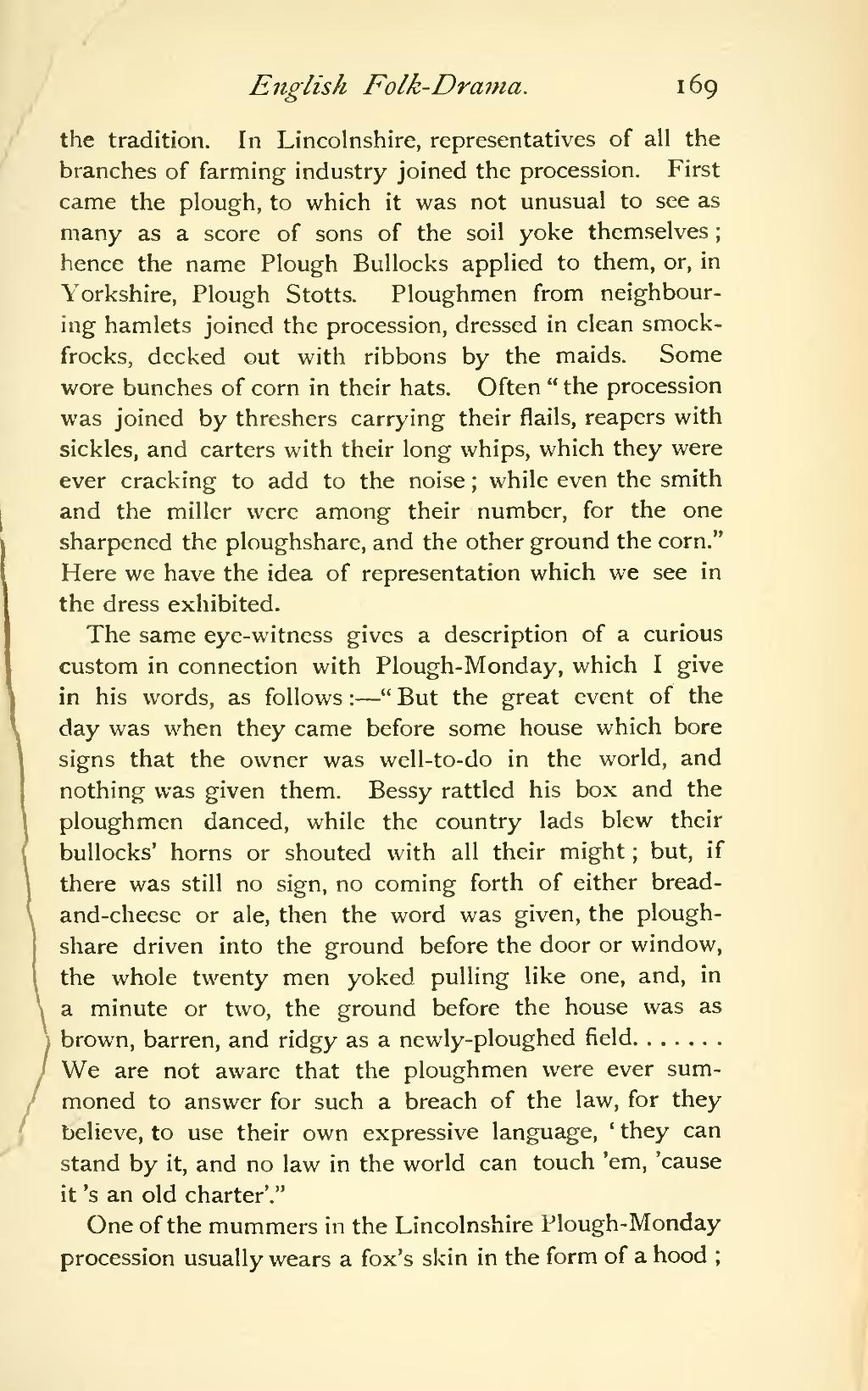the tradition. In Lincolnshire, representatives of all the branches of farming industry joined the procession. First came the plough, to which it was not unusual to see as many as a score of sons of the soil yoke themselves ; hence the name Plough Bullocks applied to them, or, in Yorkshire, Plough Stotts. Ploughmen from neighbouring hamlets joined the procession, dressed in clean smock-frocks, decked out with ribbons by the maids. Some wore bunches of corn in their hats. Often "the procession was joined by threshers carrying their flails, reapers with sickles, and carters with their long whips, which they were ever cracking to add to the noise; while even the smith and the miller were among their number, for the one sharpened the ploughshare, and the other ground the corn." Here we have the idea of representation which we see in the dress exhibited.
The same eye-witness gives a description of a curious custom in connection with Plough-Monday, which I give in his words, as follows:—"But the great event of the day was when they came before some house which bore signs that the owner was well-to-do in the world, and nothing was given them. Bessy rattled his box and the ploughmen danced, while the country lads blew their bullocks' horns or shouted with all their might; but, if there was still no sign, no coming forth of either bread-and-cheese or ale, then the word was given, the ploughshare driven into the ground before the door or window, the whole twenty men yoked pulling like one, and, in a minute or two, the ground before the house was as brown, barren, and ridgy as a newly-ploughed field ……… We are not aware that the ploughmen were ever summoned to answer for such a breach of the law, for they believe, to use their own expressive language, 'they can stand by it, and no law in the world can touch 'em, 'cause it's an old charter'."
One of the mummers in the Lincolnshire Plough-Monday procession usually wears a fox's skin in the form of a hood;
